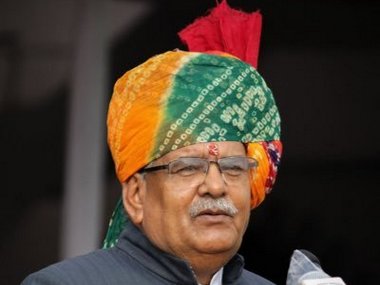Jaipur: The much-hyped and controversial Criminal Law (Rajasthan Amendment) Ordinance 2017 — which promulgated to protect public servants against probe into on-duty actions and “gagged” the media, triggering national uproar — met a silent death on Monday. Senior Cabinet Minister Gulab Chand Kataria confirmed that legally, the ordinance has lapsed. Now its fate will be decided on 27 December when a committee meets to discuss it. [caption id=“attachment_4242073” align=“alignleft” width=“380”] File image of Gulab Chand Kataria_Twitter/ @GulabKataria[/caption] Drafted by the state government on 6 September, the ordinance was introduced in the Rajasthan assembly on 23 October. As per the rule book, an ordinance is valid for 42 days after it gets tabled in the assembly, after which it lapses automatically. Going by this, the gag ordinance lapsed on 4 December. “Now, the ball is in the select committee’s court. If the committee stops it, it will be dropped, and if the committee considers it to be ok, it will be reintroduced,” said Kataria, who heads the select committee. This committee is expected to submit its report in the first week of the next assembly session. The announcement for the select committee was made on 27 November and its next meeting is scheduled for 27 December. The ordinance was meant to protect public servants from prosecution for on-duty actions. The Rajasthan government, via this ordinance, made it a must for judicial magistrates to seek government approval before taking cognizance against former and sitting judges and public servants on complaints filed under CrPC Section 156(3). Even media was not spared under this ordinance and there were provisions of jail term of up to two years for journalists publishing or broadcasting such complaints which have not been approved by the government. However, the government, in its defence, said that the gag ordinance aimed at curbing the misuse of CrPC Section 156(3). As it was protested against from all corners of the country, the state government had to refer it to the select committee, thereby leading to the silent gagging of the “gag bill”.
The Rajasthan government, via this ordinance, made it a must for judicial magistrates to seek government approval before taking cognizance against former and sitting judges and public servants on complaints filed under CrPC Section 156(3).
Advertisement
End of Article


)
)
)
)
)
)
)
)
)



